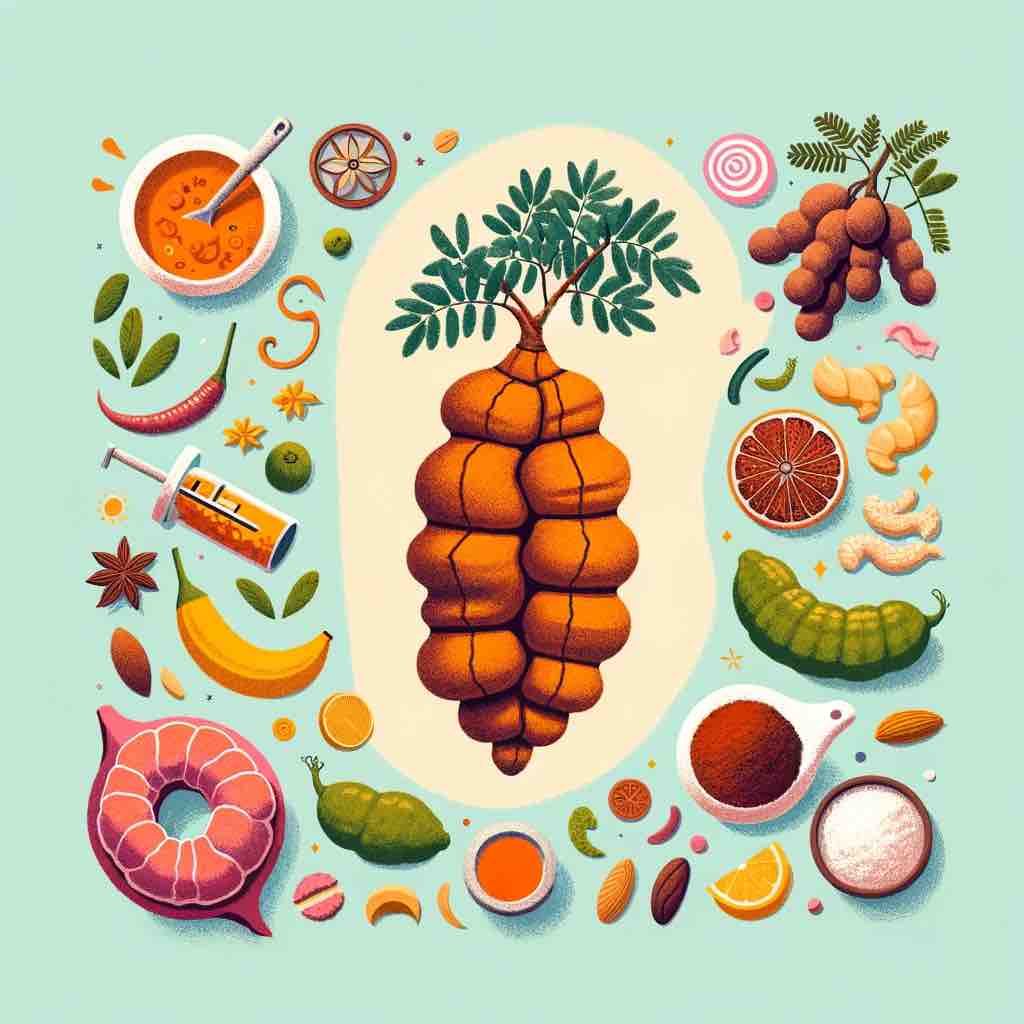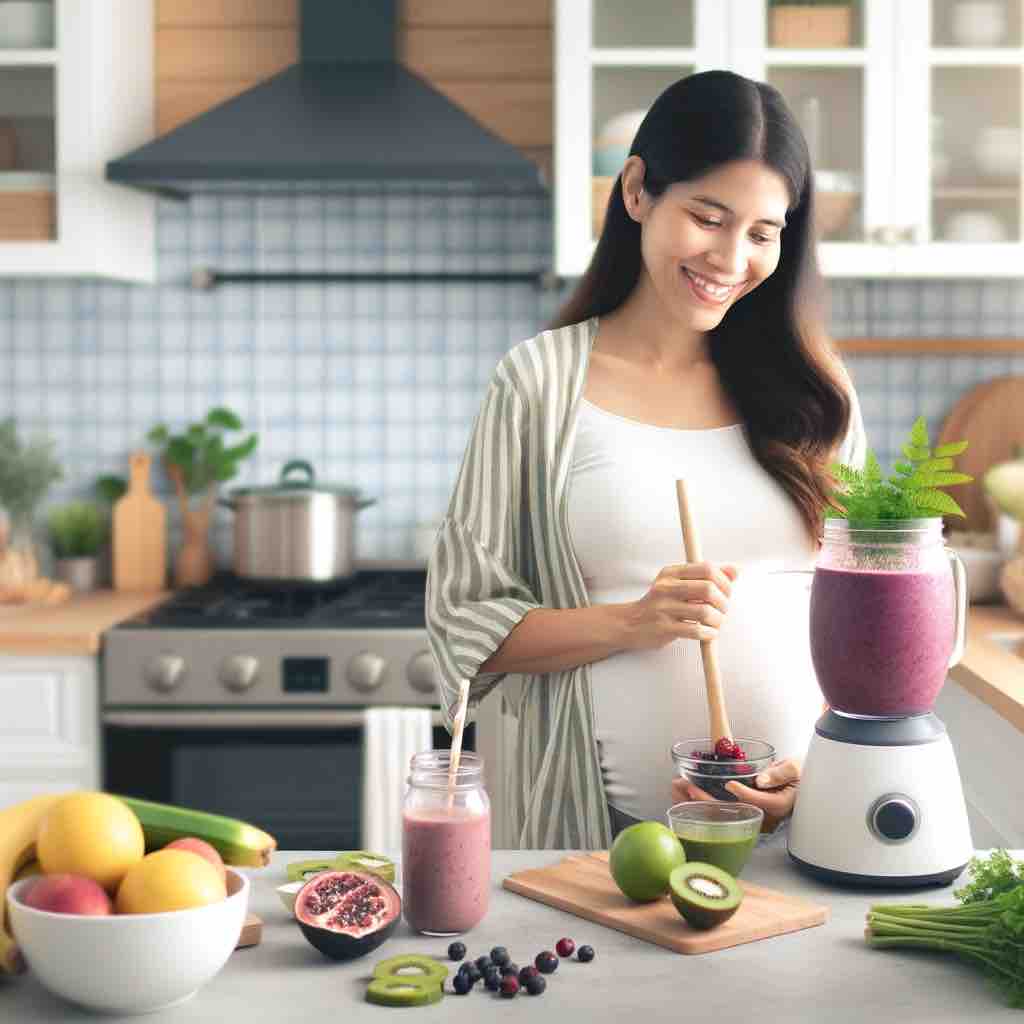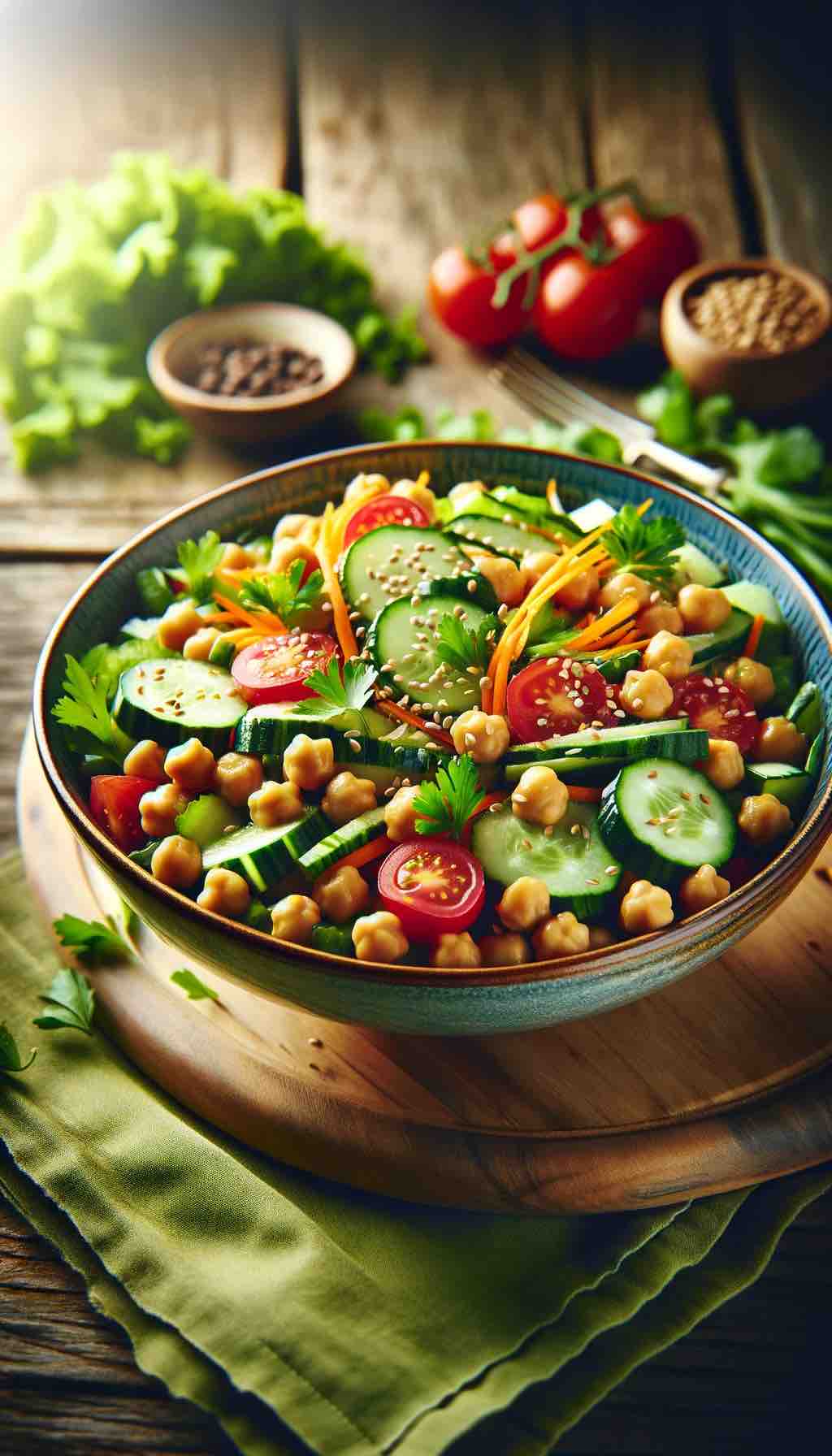
Are You Craving a Tamarind Treat? Understanding Its Role in Your Pregnancy Journey
Ah, pregnancy! A time of joy, anticipation, and… cravings? If you find yourself yearning for the tangy and sweet flavor of tamarind, you’re not alone. This tropical delight, a staple in many cuisines, becomes a frequent guest in the cravings club of many expectant mothers. But is it just a whimsical craving, or does your body know something you don’t?
In this post, we dive deep into the world of tamarind during pregnancy. We’ll explore its nutritional wonders, the fascinating reasons behind those cravings, and how to balance indulgence with health. So, if you’re debating whether to give in to your tamarind temptation, read on!
Tamarind in Pregnancy: A Sour-Sweet Symphony for Your Health
Tamarind is more than just a flavor enhancer. It’s a nutritional powerhouse, packed with vitamins, minerals, and fibers. This tangy fruit can be a true ally during pregnancy, but like all good things, it comes with a caveat – moderation is key.
Why Does Tamarind Top the Pregnancy Cravings Chart?
The craving for tamarind and other sour fruits during pregnancy isn’t just about taste. It’s a complex interplay of nutritional needs and hormonal changes. Your body might be signaling for more vitamins and antioxidants, which tamarind generously offers. But there’s more to these cravings than meets the taste buds.
In the following sections, we’ll unwrap the layers of tamarind’s benefits, address the cautions, and provide practical tips to safely include it in your pregnancy diet. Stay tuned as we unravel the mysteries of this intriguing fruit and its role in your pregnancy journey!
Section 1: The Nutritional Symphony of Tamarind in Pregnancy
As you navigate the exciting and sometimes overwhelming journey of pregnancy, understanding the role of nutrition becomes paramount. Enter tamarind, a humble yet potent player in the prenatal nutrition orchestra. Let’s delve into what makes this tangy fruit a must-consider for your pregnancy diet.
Tamarind: A Nutritional Treasure Trove
Tamarind isn’t just a treat for your taste buds; it’s a bonanza of nutrients. This tangy fruit is a rich source of essential vitamins and minerals. It’s laden with Vitamin C, known for its immunity-boosting properties, essential during pregnancy. But that’s just the tip of the iceberg. Tamarind is also a fantastic source of iron – a key mineral in preventing anemia and supporting the increased blood volume during pregnancy.
But wait, there’s more! Tamarind is a powerhouse of dietary fiber. This is particularly beneficial as it can help combat the all-too-common pregnancy issue of constipation. Fiber-rich foods not only ease digestion but also play a crucial role in maintaining a healthy weight – a concern for many expectant mothers.
Why Your Body Might Be Whispering ‘Tamarind’
Cravings during pregnancy are more than just whims; they’re often your body’s way of nudging you towards nutrients it needs. The craving for tamarind and other sour fruits might be linked to an innate desire for Vitamin C and other antioxidants. These nutrients are vital for both you and your growing baby. They support fetal development and help combat the stress of pregnancy on your body.
But it’s not just about the nutrients. The unique sour and sweet taste of tamarind can be particularly appealing if you’re dealing with morning sickness. Its tangy flavor can be a welcome relief from nausea, making it a natural remedy for those queasy mornings.
Tamarind in Your Pregnancy Diet: A Balancing Act
While tamarind is undoubtedly nutritious, it’s crucial to strike a balance. This fruit is highly acidic, which means overindulgence could lead to acidity or heartburn – common discomforts during pregnancy. Moreover, its high sugar content, especially in the sweeter varieties, might be a concern if you’re monitoring your blood sugar levels.
Including tamarind in your diet can be a delightful experience if done judiciously. Whether it’s adding a hint of it in your curries or enjoying a small serving of tamarind-based snacks, there are numerous ways to enjoy its benefits without going overboard.
In the next section, we’ll explore the fascinating science behind pregnancy cravings, particularly for tamarind, and provide practical tips on indulging these cravings healthily. Stay tuned to discover how to make tamarind a harmonious part of your prenatal symphony!
Section 2: The Craving Chronicles – Tamarind’s Call During Pregnancy
The cravings that often accompany pregnancy are a unique blend of mystery and biology. For many, tamarind stands out as a frequent craving, its sour-sweet dance tantalizing taste buds and sparking curiosity. Let’s explore the science behind these cravings and how tamarind fits into the puzzle.
Unraveling the Craving Mystery
Pregnancy cravings are more than just random desires; they’re a complex interplay of hormonal changes and nutritional needs. As your body undergoes significant transformations to support your growing baby, these cravings can be signals, pointing you towards nutrients your body might be lacking. Tamarind, with its rich nutrient profile, could be your body’s way of seeking essential vitamins, minerals, and antioxidants.
Moreover, the craving for sour foods like tamarind is often linked to their ability to alleviate some of the discomforts of early pregnancy, such as morning sickness. The tangy, refreshing taste of tamarind can be a welcome relief from nausea, providing a natural remedy to keep morning queasiness at bay.
Tamarind: A Symphony of Flavors and Benefits
Indulging in your tamarind cravings can be beneficial, but it’s essential to understand the ‘why’ and ‘how’. Tamarind is not just about satisfying your taste buds; it’s about nourishing your body and your baby. Its high iron content supports increased blood volume, while the niacin (Vitamin B3) plays a crucial role in fetal development, particularly in the formation of the nervous system and brain.
However, moderation is key. The high acidity of tamarind can lead to heartburn or acid reflux if consumed in large quantities, a common issue during pregnancy. The trick is to find creative and balanced ways to include tamarind in your diet without overdoing it.
Tastefully Incorporating Tamarind in Pregnancy Meals
Incorporating tamarind into your pregnancy diet can be both fun and nutritious. Here are some ideas:
- Tamarind in Cooking: Use tamarind to add a zesty twist to your dishes. Its tangy flavor works wonders in marinades, sauces, and even in some traditional desserts.
- Healthy Snacking: If raw tamarind is what you crave, try combining it with other fruits in a salad, balancing its sourness with the natural sweetness of other fruits.
- Hydration with a Twist: A tamarind-based drink can be both hydrating and satisfying. Mixing tamarind pulp with water and a hint of sweetener can create a refreshing beverage, perfect for those pregnancy cravings.
In the next section, we’ll dive into the dos and don’ts of tamarind consumption during pregnancy, ensuring you can enjoy this delightful fruit while keeping health risks at bay. Stay tuned for practical tips and thoughtful insights on making tamarind a safe and enjoyable part of your prenatal diet!
Section 3: Navigating Tamarind Consumption During Pregnancy – A Balanced Approach
Embracing the sour and sweet allure of tamarind in your pregnancy diet requires a judicious approach. While its nutritional benefits are undeniable, understanding the dos and don’ts is crucial for your and your baby’s well-being. Let’s explore how to enjoy tamarind responsibly during this special time.
The Dos: Savoring Tamarind the Right Way
- Incorporate Moderation: The golden rule with tamarind, as with most foods during pregnancy, is moderation. Enjoying it in small amounts can provide the nutritional benefits without the risks of overconsumption.
- Creative Culinary Uses: Tamarind’s versatility in cooking is its superpower. Use it to add zest to soups, stews, or sauces. Its tangy flavor can enrich a variety of dishes, making your meals more exciting and nutritious.
- Combining for Balance: Pair tamarind with other ingredients to balance its acidity and sugar content. For instance, adding it to a vegetable stir-fry or a fruit salad can create a delightful gastronomic harmony.
- Hydration with Flavor: Tamarind juice, diluted and slightly sweetened, can be a refreshing way to stay hydrated. It’s a perfect alternative to sugary soft drinks, providing flavor and nutrition in every sip.
The Don’ts: Steering Clear of Tamarind Pitfalls
- Beware of Excess Acidity: If you’re prone to heartburn or acid reflux, a common pregnancy ailment, limit your tamarind intake. Its high acidic content can exacerbate these conditions.
- Watch the Sugar: Especially if you’re managing gestational diabetes, be mindful of the natural sugars in tamarind. Opt for the less sweet varieties or consume it in dishes where its sugar content is balanced with other ingredients.
- Avoid Unbalanced Diets: Don’t let tamarind or any specific craving dominate your diet. A balanced diet, rich in various nutrients, is crucial during pregnancy.
- Consult Your Healthcare Provider: If you have specific dietary restrictions or health conditions, a discussion with your healthcare provider is essential before making tamarind a regular part of your diet.
Making Tamarind a Part of Your Pregnancy Journey
Enjoying tamarind during pregnancy can be a delightful experience that adds both flavor and nutrition to your diet. By understanding how to incorporate it safely and tastefully, you can make the most of this unique fruit’s benefits. Remember, your pregnancy diet is not just about satisfying cravings but also about nurturing your body and your growing baby with the right nutrients.
In our next section, we will delve into the fascinating world of pregnancy cravings. We’ll explore their underlying causes and how to manage them effectively while maintaining a nutritious and balanced diet. Stay tuned for insightful tips and engaging ideas!
Section 4: Decoding Pregnancy Cravings – The Tamarind Connection
Pregnancy is a time of numerous changes, and cravings are one of the most intriguing aspects. Understanding these cravings, especially the desire for specific flavors like tamarind, can be fascinating. Let’s delve into the world of pregnancy cravings, their possible meanings, and how to manage them healthily.
Why Cravings Happen During Pregnancy
- Hormonal Changes: Pregnancy brings a rollercoaster of hormonal shifts, affecting your sense of taste and smell. These changes can lead to specific cravings, as foods like tamarind offer a strong and satisfying sensory experience.
- Nutritional Needs: Sometimes, your body craves what it needs. The craving for tamarind, a nutrient-rich fruit, might indicate your body’s demand for certain vitamins or minerals.
- Emotional Comfort: Cravings can also be tied to emotional needs. The familiar taste of tamarind might evoke comfort or nostalgia, providing emotional support during this life-changing period.
The Role of Tamarind in Pregnancy Cravings
Tamarind often emerges as a star player in the craving game due to its unique flavor profile. Whether it’s the tangy zing or the subtle sweetness, tamarind can be a satisfying answer to your pregnancy cravings. Its rich nutrient content also adds to its appeal, making it a craving that’s beneficial when satisfied judiciously.
Managing Cravings Healthily
- Listen to Your Body: Pay attention to what your cravings might be telling you. If you’re craving tamarind, it could be your body asking for more fiber or vitamins.
- Balance is Key: While indulging cravings is okay, balance them with other nutritional needs. If tamarind is on your mind, pair it with protein-rich foods or vegetables to create a well-rounded meal.
- Healthy Alternatives: If you’re concerned about overindulging, look for healthier ways to satisfy your craving. For instance, a tamarind-infused water or a small amount of tamarind in a salad can be healthier options.
- Stay Informed: Understanding the benefits and potential risks of your craving choices, like tamarind, helps you make informed decisions. Always consider your overall diet and health needs.
Tamarind: A Craving Worth Indulging?
The bottom line is that craving tamarind during pregnancy can be both a delight and a benefit. By understanding the reasons behind your cravings and how to satisfy them healthily, you can enjoy this flavorful fruit while caring for your nutritional needs and those of your baby.
In our next section, we’ll wrap up with key takeaways and final thoughts on tamarind during pregnancy. We’ll provide a concise summary and practical tips for expectant mothers to navigate their dietary choices effectively. Stay tuned for our concluding insights on this flavorful journey through pregnancy!
Section 5: Wrapping Up – Tamarind in Pregnancy, A Final Overview
As we come to the end of our journey exploring tamarind during pregnancy, let’s consolidate our learnings and offer some final thoughts and practical tips. This section aims to provide a concise summary and guidance for expectant mothers on incorporating tamarind into their pregnancy journey.
Key Takeaways on Tamarind During Pregnancy
- Nutritional Powerhouse: Tamarind is a treasure trove of nutrients like iron, niacin, fiber, and vitamins, making it a beneficial addition to the pregnancy diet.
- Cravings Decoded: Cravings for tamarind may indicate a need for its specific nutrients or a desire for its unique taste that can help with morning sickness.
- Moderation Matters: While tamarind offers many benefits, it’s important to consume it in moderation to avoid issues like heartburn or excessive sugar intake.
- Versatile and Flavorful: Tamarind can be incorporated into various dishes, offering a healthy and flavorful way to enhance your meals.
Practical Tips for Including Tamarind in Your Diet
- Experiment in Cooking: Use tamarind to add a tangy twist to your dishes. Whether it’s in curries, marinades, or even beverages, tamarind can elevate the flavor profile of your meals.
- Satisfy Cravings Smartly: If you crave tamarind, try satisfying it with small portions or in combination with other healthy ingredients.
- Consult with Health Professionals: If you have any dietary concerns or health conditions, discuss your tamarind consumption with your healthcare provider for personalized advice.
- Listen to Your Body: Pay attention to how your body responds to tamarind. If it causes any discomfort, it’s best to reduce the quantity or frequency of consumption.
Concluding Thoughts on Tamarind and Pregnancy
Tamarind, with its unique flavor and nutritional richness, can be a delightful and beneficial part of your pregnancy diet. Understanding its benefits and potential risks allows you to enjoy this fruit in the healthiest way possible. As with all aspects of pregnancy nutrition, the focus should be on balance, variety, and moderation.
Remember, each pregnancy is unique, and what works for one person may not work for another. The key is to find what best supports your health and well-being during this special time.
We hope this guide has been helpful in navigating the world of tamarind during your pregnancy. May your journey be filled with health, happiness, and delicious, nutritious choices! 🌿🤰🌟
10 FAQs on Tamarind Consumption During Pregnancy
- Is it safe to eat tamarind during pregnancy? Yes, it is safe to eat tamarind in moderation during pregnancy. Tamarind is a rich source of essential nutrients beneficial for both mother and baby.
- Can tamarind help with morning sickness? Many women find the sour taste of tamarind helpful in alleviating morning sickness. Its unique flavor can soothe the stomach and reduce feelings of nausea.
- How much tamarind can I eat while pregnant? There’s no specific limit, but moderation is key. Include it as part of a balanced diet, and avoid consuming it in large amounts to prevent heartburn or excessive sugar intake.
- Are there any risks associated with eating tamarind during pregnancy? While tamarind is generally safe, excessive consumption can lead to heartburn, acid reflux, and an imbalance in blood sugar levels, especially in women with gestational diabetes.
- Can tamarind cravings indicate a nutrient deficiency? Cravings can sometimes indicate a need for certain nutrients. Tamarind’s rich nutrient profile, including iron and vitamin B3, may be what your body is seeking.
- What are the nutritional benefits of tamarind for pregnant women? Tamarind is rich in iron, vitamin C, niacin (vitamin B3), and dietary fiber, which are important for fetal development, immunity boost, and digestive health.
- Can eating tamarind lead to weight gain during pregnancy? Tamarind itself is not likely to cause significant weight gain if consumed in moderation as part of a balanced diet.
- How can I include tamarind in my pregnancy diet? Tamarind can be included in various ways, such as adding it to curries, making refreshing drinks, or using it in small quantities as a flavor enhancer in different dishes.
- Should I avoid tamarind if I have gestational diabetes? If you have gestational diabetes, it’s important to monitor your intake of tamarind due to its natural sugar content. Consult with your healthcare provider for personalized advice.
- Does tamarind consumption affect the baby? When consumed in moderation, tamarind does not negatively affect the baby and can contribute beneficial nutrients to your pregnancy diet.
Blog Tags for the Post: Pregnancy Nutrition, Tamarind Benefits, Healthy Eating During Pregnancy, Managing Cravings, Fetal Development, Maternal Health, Diet and Pregnancy, Natural Remedies, Morning Sickness Solutions, Balanced Diet in Pregnancy












